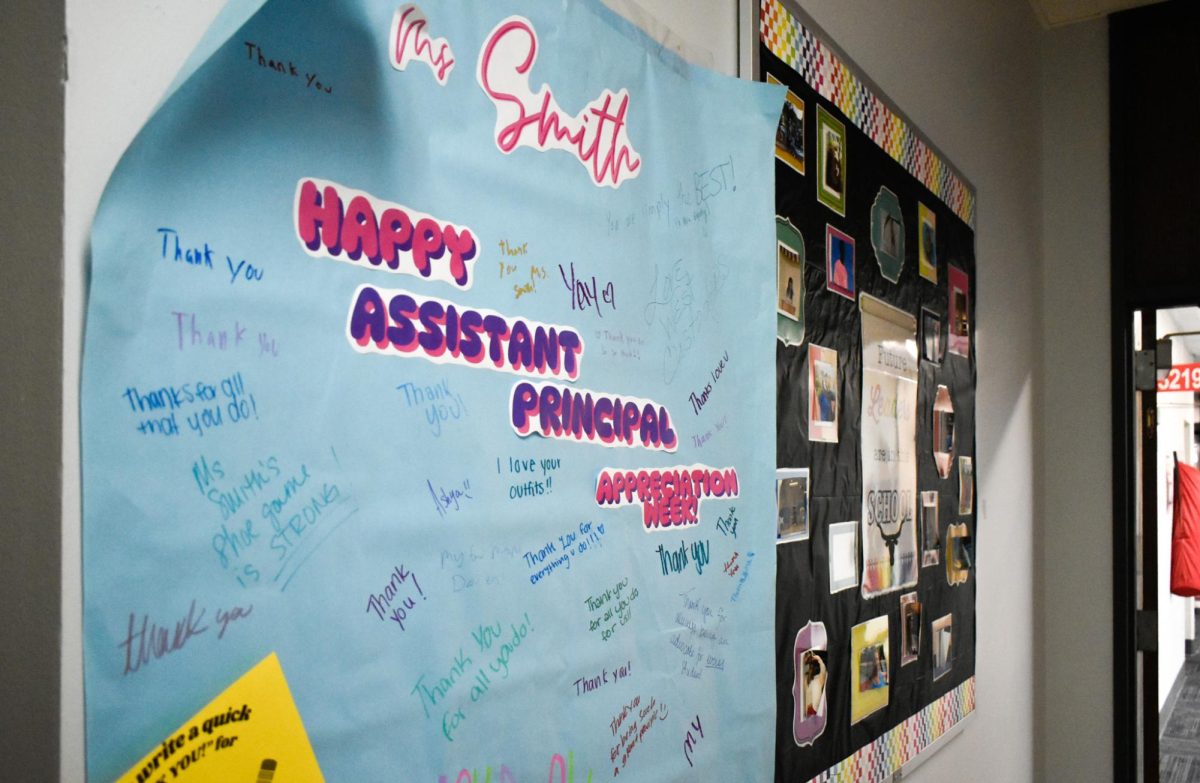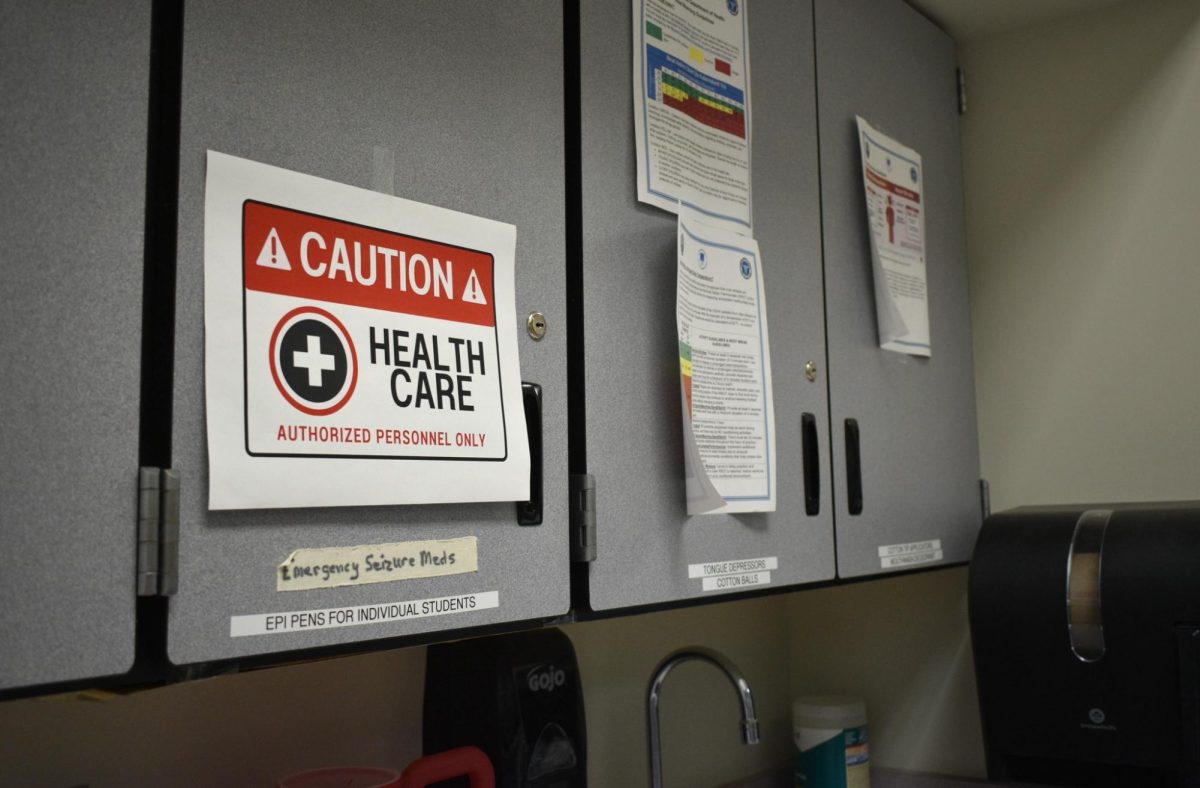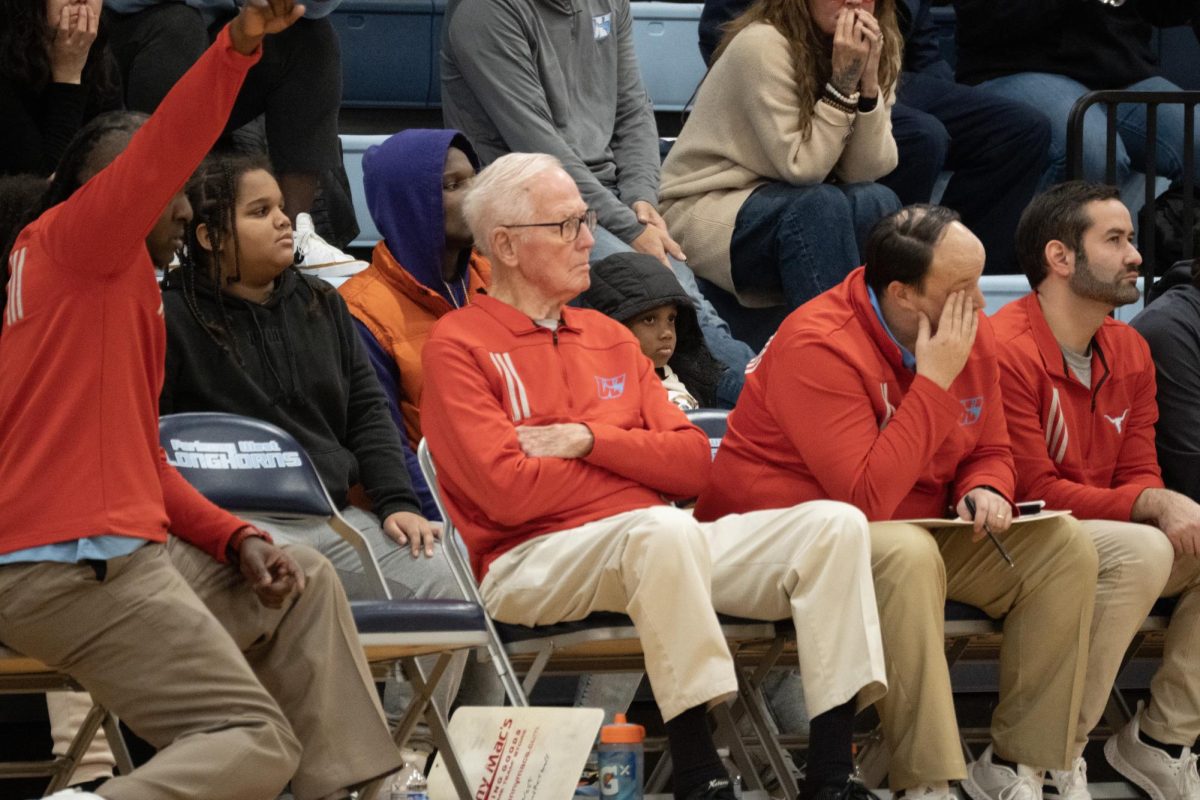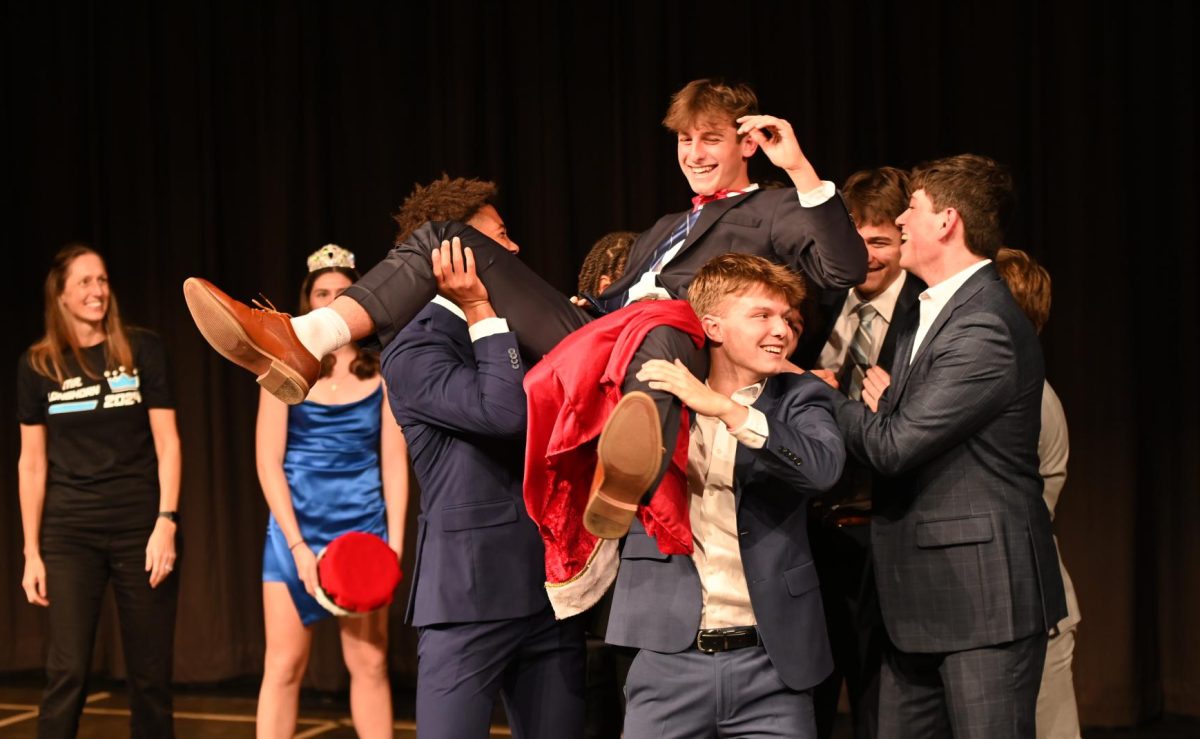We spent this year blaming 2020 for everything. We blamed it and online school as counselors struggled to solve unprecedented scheduling problems and care for students’ mental health simultaneously. We blamed it for the lack of connection as teachers could no longer check in on their students and their well-being. We blamed it when those who relied on Parkway to provide meals were initially left to hang.
We took to blaming incomprehensive social services on 2020, a year we’ve collectively deemed a disaster. The unfortunate events of this past year, however, were simply the catalyst these issues needed to rear their ugly heads. A vicious cycle of overburdening education providers, present throughout history, has become more apparent as our educational system faced trial after trial this past year.
This cycle appears throughout history. The evolution of the role of school counselors is a prime example of it. Counselors originally were teachers asked to take on the additional responsibility of guiding students through and toward their academic and career goals. Around the 1920s and 1930s, schools began hiring counselors specifically to take on these tasks. As they did, however, the role of counselors grew to once again having to take on more than their fair share; they were expected to cover the above tasks, while also solving scheduling problems and providing behavioral guidance and mindset education.
In recent years, we’ve added college counselors and social workers, but we also continued to add responsibilities like providing social and emotional health services. Counselors and teachers were asked to do more with less people. This is the exact cycle of overburdening that continues today, 100 years later, with respect to the education system and social services. School systems take on more responsibilities, ask existing staff and the community to expand their roles to carry out these responsibilities, and then add more resources to take on the job just as they take on more responsibilities.
Schools and the education system inherently embody a mindset of “what more can we do?” This can be positive, encouraging constant growth, but it needs the action to back it up. If the education system wants to take on responsibility for providing social services, it should employ enough people and secure enough resources to provide them, so they don’t continue adding straws of hay onto the backs of their current staff.
Online schooling, a huge part of 2020, has exposed just how many of these additional responsibilities are placed on our teachers in addition to their primary job: education. One example is teachers no longer being able to simply make sure we’re OK.
“I feel like my role has already been shifting towards this over the past several years. When I first started teaching I was [focused on] lesson plans, tests, essays and feedback. And yes, I obviously have to do those things, but it has slowly become a much more primary concern to check on the emotional well-being of the kids that I’m with,” English teacher Cara Borgsmiller said.
One of the key things teachers do besides actually teaching is have daily conversations that monitor how students are feeling. Prior to COVID-19, we would always hear “How did your recital go?” or “Did you get to binge the new season of ‘Grey’s Anatomy’?” or even just “How are you doing today?” Teachers take the time to feel out our mood, which has become crucial in preserving our everyday mental stability and health, especially if we don’t have anyone else in our lives asking those questions. They use this time to read nonverbal cues like seeing if a student has bags under their eyes. However, with COVID-19, these daily check-ins that are crucial to detecting someone’s mental stability are virtually impossible.
“I literally cannot know [how my students are doing] because the vast majority of [students] will have their screens off. It makes those kinds of check-ins impossible,” Borgsmiller said. “I think a lot of these kids don’t even know they need a daily check-in. Sometimes it takes somebody to point out to them that they are not OK and then do something about it.”
Students are struggling to form the connections with teachers that they previously relied on, struggling with mental health, showing us just how important it has become for teachers to center attention on the mental wellbeing of their students.
Schools are not properly equipped to handle larger mental health issues either. Mental health services that need the full attention of those who can help are instead placed on the backs of counselors handling other tasks as well. As mentioned earlier, counselors are now responsible for academic planning, behavioral situations, scheduling, letters of recommendation, transcript management and countless other tasks. Something as paramount as mental health services cannot be second tier, another job added on.
Mental healthcare isn’t the only additional service our educational systems have taken on. Schools are used as an avenue to fight food insecurity, a task necessary for the health of students. A prime example is the Parkway Pantry, which combats food insecurity, a prevalent issue that already affects more than 172,000 children in the St. Louis area. While the Pantry is staffed by Parkway employees, they also rely greatly on core volunteers and community donations. It is so beneficial to many that the Parkway Pantry acts as a safety net to ensure that families in our area are fed after school hours. As school moved virtual, the Pantry had to quickly evolve to be able to continue to fill this role, reiterating just how essential their social service is. On the Parkway Pantry’s webpage, they explain that there are at least 150 students currently on a waiting list to receive consistent help from the food pantry. One hundred and fifty students are food insecure and do not know where their next meal will come from. This hinders a student’s ability to learn, is socially stigmatizing and leads to developmental issues. This program is vital to the health of our community, so how long will it be before this necessary service receives necessary support?
We know that the service the food pantry provides, along with the extra responsibilities taken on by teachers and counselors, reflect the eagerness of the Parkway staff and community to make this world a better place for us. We are beyond grateful. We know you love what you do and you do it for us, and we will always be thankful. The issues uncovered by 2020 are not your fault; we need to break this cycle that perpetuates incomprehensive social services.
We hope that in the future, we can find balance. In some cases, it might be beneficial to use the established power and organization of the education system, such as having a constant source of income for the food boxes the Pantry sends home. In other cases, though, students might receive more thorough, more holistic care in the hands of state-funded psychologists whose primary purpose is to provide mental healthcare instead of placing that responsibility on counselors who have to juggle various other tasks as well.
Overburdening teachers and our school systems is not a stable way to solve the myriad of issues currently plaguing youth and schools. While we are extremely fortunate to have staff in Parkway who take on more than their job description with a smile on their face, this isn’t fair to them. This is not an issue that will go away by simply asking them to do more. These trends are nothing new; they’ve merely been exposed and brought to mainstream attention because of COVID-19.
We don’t know exactly what a solution looks like yet. It might take restructuring the way funds are allocated to address these issues; it might take a more universal understanding of the expectations placed on schools and staff. It will take having honest discussions about education, culture and healthcare in America that recognize the flaws in our education system and mistakes of the past. None of these issues are new or symptoms of the past 365 days. The issue is bigger than the past year, as we’ve been approaching a breaking point ever since the fusion of education and social services began. It’s crucial to understand this, to understand that we’ve been hurtling towards disaster, to understand that an overburdened and underfunded system has to do more with less, to understand that this system doesn’t work. It’s time we break the cycle.




![Red, white and blue, the American flag holds the values of our democracy. The fight that we once endured has returned, as student journalists and senior correspondents across the country are losing their voices due to government control. “[Are] the White House and [the] government limiting free speech [and] freedom of the press? Yes [they are],” chief communications officer of the Parkway School District and former journalist Elisa Tomich said.](https://pwestpathfinder.com/wp-content/uploads/2025/03/Untitled-design-14.jpg)
![A board in the Parkway West counseling department displays pennants of selective universities. With a wide range of students interested in attending, it’s important that these schools have clear priorities when deciding who to admit. “[Washington University] had the major that I wanted, psychology, philosophy, neuroscience. That's a holistic study of the brain, and [WashU is] the only college in the world that offers that. That's the main reason I wanted to go; I got into that program,” senior Dima Layth said.](https://pwestpathfinder.com/wp-content/uploads/2025/02/Flag-1.png)

![Within the U.S., the busiest shopping period of the year is Cyber Week, the time from Thanksgiving through Black Friday and Cyber Monday. This year, shoppers spent $13.3 billion on Cyber Monday, which is a 7.3% year-over-year increase from 2023. “When I was younger, I would always be out with my mom getting Christmas gifts or just shopping in general. Now, as she has gotten older, I've noticed [that almost] every day, I'll open the front door and there's three packages that my mom has ordered. Part of that is she just doesn't always have the time to go to a store for 30 minutes to an hour, but the other part is when she gets bored, she has easy access to [shopping],” junior Grace Garetson said.](https://pwestpathfinder.com/wp-content/uploads/2024/12/DSC_0249.JPG-1200x801.jpg)

![Senior Sally Peters stands in the history hallway, contemplating her choices in the 2024 United States and Missouri elections on Nov. 5. As a member of Diplomacy Club, Peters has discussed key candidates and issues in contemporary American politics. “[As students], we're starting to become adults. We're realizing how much the policies that are enforced and the laws that make it through the House and Senate are starting to affect us. [Opportunities such as] AP [U.S.Government] and Diplomacy Club [make elections feel] a lot more real,” Diplomacy Club vice president and senior Nidhisha Pejathaya said.](https://pwestpathfinder.com/wp-content/uploads/2024/10/Flag-1-1.png)
![Mounting school pressure can leave many students overworked and overstressed. Schools must give students the necessary resources to help assuage student mental health issues and prevent the development of serious crises. “The biggest thing [schools] can do [to protect student mental health] is offer more time [to do work], like a study hall, or offer more support from teachers so that students don't feel stressed out and can get help in areas that they need,” senior Bhavya Gupta said.](https://pwestpathfinder.com/wp-content/uploads/2024/09/unnamed-4.jpg)
![Like many students, sophomore Medina Nanic experiences pressure to do well in school. Through continuous success and achievements, West has developed a high academic standard for students. “Because we’re seen as one [of] the better schools, we have higher standards than the [schools] who aren’t ranked as high. There’s a lot of pressure on students to do [well] and live up to those standards,” Nanic said.](https://pwestpathfinder.com/wp-content/uploads/2024/05/DSC_0029-2-1200x800.jpg)
![Junior Fiona Dye lifts weights in Strength and Conditioning. Now that the Trump administration has instituted policies such as AI deregulation, tariffs and university funding freezes, women may have to work twice as hard to get half as far. "[Trump] wants America to be more divided; he wants to inspire hatred in people,” feminist club member and junior Clara Lazarini said.](https://pwestpathfinder.com/wp-content/uploads/2025/05/Flag.png)
![As the Trump administration cracks down on immigration, it scapegoats many immigrants for the United States’ plights, precipitating a possible genocide. Sophomore Annabella Whiteley moved from the United Kingdom when she was eight. “It’s pretty scary because I’m on a visa. When my visa expires next year, I’m not sure what’s going to happen, especially with [immigration] policies up in the air, so it is a concern for my family,” Whiteley said.](https://pwestpathfinder.com/wp-content/uploads/2025/05/DSC_0077-7copy.jpg)
![Shifting global trade, President Donald Trump’s tariffs are raising concerns about economic stability for the U.S. and other countries alike. “[The tariffs are] going to pose a distinct challenge to the U.S. economy and a challenge to the global economy on the whole because it's going to greatly upset who trades with who and where resources and products are going to come from,” social studies teacher Melvin Trotier said.](https://pwestpathfinder.com/wp-content/uploads/2025/05/MDB_3456-1200x800.jpg)

![Pitching the ball on Apr. 14, senior Henry Wild and his team play against Belleville East. Wild was named scholar athlete of the year by St. Louis Post-Dispatch after maintaining a high cumulative GPA and staying involved with athletics for all of high school. “It’s an amazing honor. I feel very blessed to have the opportunity to represent my school [and] what [it] stands for,” Wild said.](https://pwestpathfinder.com/wp-content/uploads/2025/05/unnamed-6-1200x714.jpg)
![Freezing in their position, the Addams Family cast hits the “rigor mortis” pose after cast member and senior Jack Mullen, in character as Gomez Addams, calls out the stiff death move. For the past four months, the combined company of cast members, orchestra pit, crew and directors all worked to create the familial chemistry of the show. “I’m excited for [the audience] to see the numbers, the music, the scenes, but I also just love all the technical aspects of it. The whole spectacle, the costumes, makeup and the people that put in the work backstage in order to make the show successful on stage. I’m excited for people to see and appreciate that,” Mullen said.](https://pwestpathfinder.com/wp-content/uploads/2025/03/DSC0116-1200x800.jpg)

![Some of the most deadly instances of gun violence have occurred in schools, communities and other ‘safe spaces’ for students. These uncontrolled settings give way to the need for gun regulation, including background and mental health checks. “Gun control comes about with more laws, but there are a lot of guns out there that people could obtain illegally. What is a solution that would get the illegal guns off the street? We have yet to find [one],” social studies teacher Nancy Sachtlaben said.](https://pwestpathfinder.com/wp-content/uploads/2025/01/DSC_5122-1200x800.jpg)
![Complex global supply chains supply the goods for everyday luxuries, such as the coffee at West High’s Blue Brew. Low tariffs enabled much of the prosperity of modern history. “Higher tariffs lead to higher costs. A tariff is a tax on an imported good, and someone has to pay for that tax, and typically that [will] end up impacting consumers,” economics teacher Rachel Money said.](https://pwestpathfinder.com/wp-content/uploads/2024/12/Flag-1.png)
